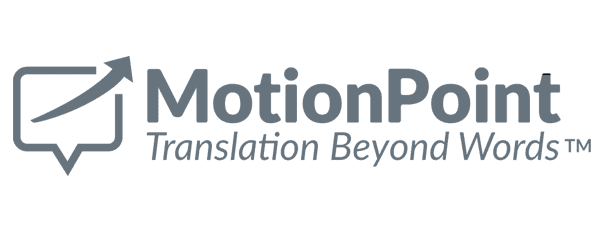




На международном рынке клиенты намного больше доверяют веб-сайтам с текстом на их предпочтительном языке и, соответственно, именно на таких сайтах совершают больше покупок.
Yet many major companies are just now beginning to appreciate the vital role language and website translation play for online global customers. Not only does it govern our online conversations and behavior, but it also limits what information we access.
Twenty years ago, researchers determined that about 80% of the Internet’s content was published in English—not surprising, given that the Internet was initially developed in the U.S. and UK, and was rapidly adopted in those countries.
Сегодня, если компания планирует эффективно работать с зарубежными клиентами, ей недостаточно иметь веб-сайт только на английском языке. С середины 90-х годов Интернет и весь мир кардинально изменились. Чтобы сохранять конкурентоспособность, компаниям жизненно необходимо поддерживать высокий темп развития.
January 1, 1983 is considered the official birthday of the Internet. Since then, a lot has changed. The Internet's expansion into a global communication landscape was swift. In 1993, after 10 years of existence, it only communicated 1% of the information flowing through two-way telecommunications networks. That shot up to 51% by 2000, and more than 97% by 2007.
Here are some of the ways the internet was able to expand into a global communication tool:
While everyone around the world has started to use the internet to interact, buy and sell goods, and develop professionally, the issue of language and communication barriers became evident. If the entire internet were to choose one language, what would it be?
A lingua franca is a language used to communicate between groups who speak different languages. It’s the most efficient way to get information across to multilingual audiences. For the internet, it represents the most common language utilized by web creators and businesses.
За последние десять лет доступ к Интернету получило огромное количество людей, что значительно повлияло на онлайн-контент. The number of Internet users worldwide is around 5 billion, up nearly ~126.24% from the 2.21 billion users reported in 2015. Основной рост числа пользователей приходится на развивающиеся рынки, где английский является либо вторым, либо третьим языком или вовсе не используется.
Between the mid-90s and mid-2000s, English-language content dropped from 80% to about 45% of total online content, with some experts placing it at less than 40%. This trend was fueled by the global adoption of mobile and smartphone technology, and the emergence of social media. Chinese became the second-most common language used online, increasing by a staggering 2,227% since 2000.
Currently, English still holds the first place slot with 58.8% of Internet use. Russian is in second at 5.3%. Spanish represents a close third, with French trailing right behind in fourth.
China and India currently lead the world in Internet and social media usage. China now has 1.2 billion users, a majority of their current population. В Китае английский язык не является основным, а в Индии примерно 90 % жителей вообще не говорят на английском.
Studies suggest that about half of all Twitter posts are written in languages other than English—with Japanese, Spanish, Portuguese and Indonesian consumers being most active.
[insert YouTube video: https://youtu.be/bVeAN8h40Q4]
This ever-evolving linguistic landscape profoundly impacts global online business. По данным опроса, проведенного в 2006 году агентством Common Sense Advisory, 73 % респондентов признались, что с большей вероятностью совершают покупки на сайтах на их родном языке. Eight years later, the group conducted a larger-scale study. Потребительский спрос вырос до 75 %.
Опрос 2014 года показал, что примерно 60 % респондентов либо "проводят больше времени на сайтах с контентом на их родном языке, чем на английском, либо совершенно отказываются посещать страницы с URL-адресами на английском". Кроме того, потребители во всем мире выразили желание платить больше за те товары, описание которых представлено на их предпочтительном языке.
By translating and localizing your business’ website to accommodate certain markets, you open yourself up to some great benefits:
The takeaway is clear: English hasn’t been the lingua franca of the Internet for many years—and as Internet adoption continues to grow worldwide, content in languages other than English will become increasingly vital for business.
Чтобы сохранять конкурентоспособность на международном рынке, вне зависимости от отрасли, компаниям необходимо создавать веб-сайты, адаптированные под конкретный рынок, переведенные на нужный язык и доступные для местных потребителей на предпочтительных для них устройствах. Website translation is now essential for businesses that want to grow and stay relevant. Embracing these inclusive best practices is mission-critical to achieving international business success.
MotionPoint’s Adaptive Translation™ is the first step to making your website more accessible and useful for multilingual consumers. Contact us today!